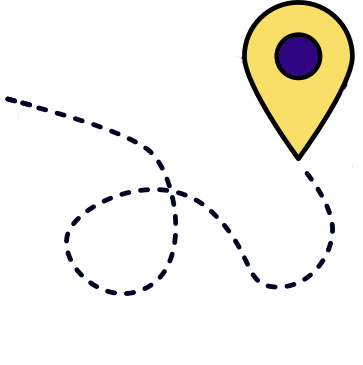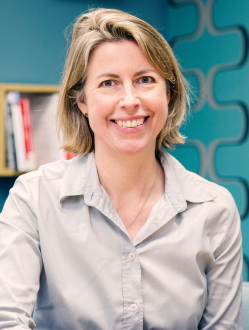An appropriate focus on outcomes helps organisations and individuals manage complex projects and programmes and respond appropriately to the challenges that inevitably arise. Using outcomes well creates a framework for action.
In this post, I outline four ways in which using outcomes as a framework for action will empower your work towards social change and when to be cautious with outcomes.
Four ways outcomes help with change:
1. Build a clear and shared vision of where you want to get to.

Effective change programmes are driven by the outcomes that matter to the people and communities at their heart. The first step on the change journey is to agree what matters to people and why it matters.
2. Plan how you can work together to make the change you hope for.

A focus on outcomes gives you a starting point to agree a logical (though not necessarily linear or simplistic) understanding of how your planned activities will contribute to the difference you hope for. Breaking the change process down into meaningful steps enables you to agree the contributions of everyone involved and how you expect to get there.
3. Track your progress towards the outcomes you care about.

When delivering people-based services and programmes to address complex social issues, change always takes time and often involves dealing with and responding to the unexpected, both good and bad.
A meaningful outcomes framework provides something tangible to anchor your work, track progress against and helps you flex your plans as required. It can help you see when and where progress is slow, and give you tools for regrouping around what matters.
4. Reflect on the process and share and embed learning .
Capturing learning and telling the story of complex change processes can be hard, especially when you want to capture what went well and where things were challenging.

Having a clear framework for how you hoped your work would contribute to outcomes helps make sense of your experience and evidence. It also helps you tell a realistic story that others can learn from and gives space to highlight the unique contribution that individuals and organisations made towards the changes that were realised.
A note of caution…
Whilst we think good outcome focused tools and approaches can make great frameworks for action, there are a few things they are not good for.
They are not good for – measuring or attributing change, assessing performance or for managing resources and rewards. This is because when we are doing complex, people-based change our work is only ever one factor that influences whether the outcomes we hope for are realised. See our post on why data on children’s wellbeing can be misleading for more on this.
When working with outcomes we must always remember that we do deliver services, we don’t deliver outcomes – we work towards them.
Putting meaning at the centre of your work
In Scotland that are lots of organisations that have been working in an outcome-focused way for many years. Evidence tells us that people enjoy working in this way – that it’s satisfying, and realistic.
Meaningful, useful and effective outcome approaches empower the people that are making change happen by:
- Celebrating diversity: recognising that good action is different every time, and always tailored to local circumstances. Also recognising that we can all bring unique contributions to the change process.
- Appreciating context: recognising that we’re often working in really challenging circumstances and no matter how brilliant our work is, we’re not going to change the world. Being honest about the challenges we’re working with is key to being empowered to make change in a much more meaningful way- we know where we can make a difference.
- Putting people front and centre: this process doesn’t ignore the personal, because people, relationships and emotions are at the heart of the change process.
If you found this post helpful, you may like to watch the recording of our live webinar 'Learning from putting Scotland’s outcome approach into action' in which we reflect on 15 years of experience of focusing on what matters.
Find out more